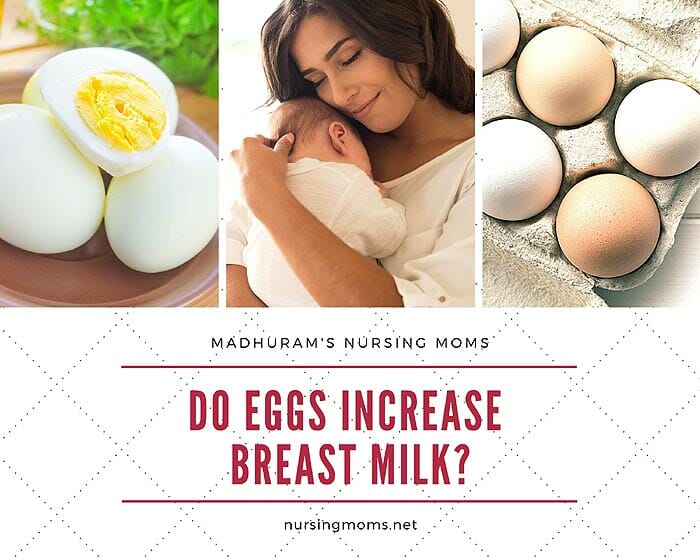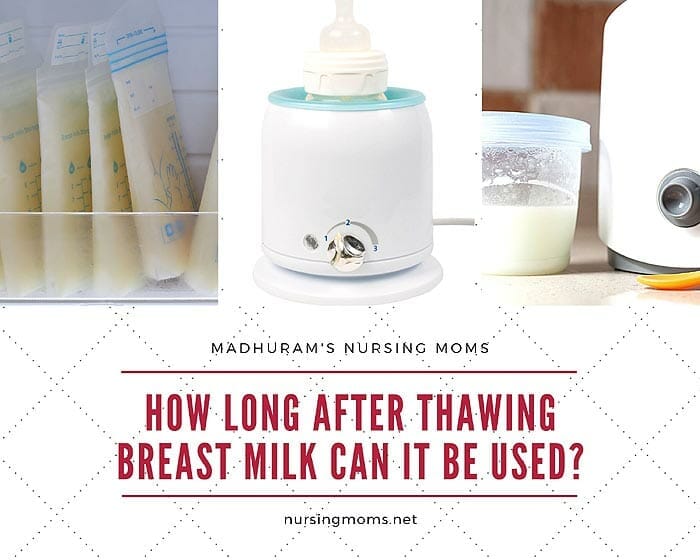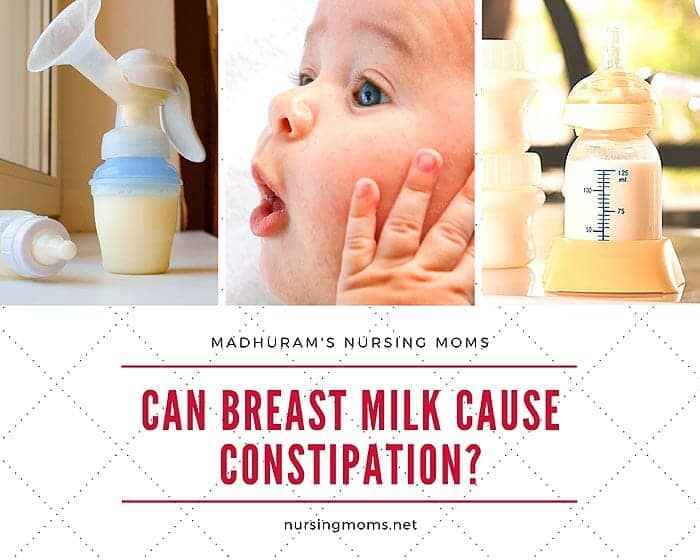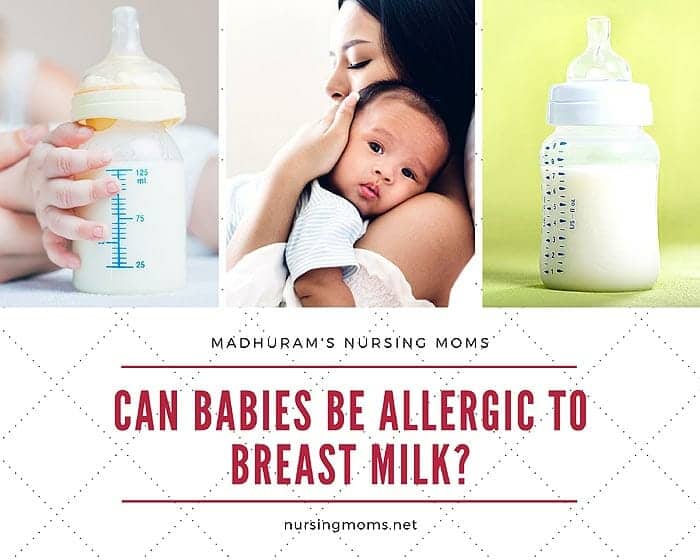
Do Eggs Increase Breast Milk? Diet is important for nursing mothers, and everything in your diet will affect the quality of your breastmilk. Therefore, it is essential to have a balanced intake of food that includes fruits, veggies, lean meat, and other forms of animal protein.
With such a valid concern for their diet[1], many women wonder if they can eat eggs when nursing their babies and how eggs impact their breastmilk supply.
Eggs are safe for nursing mothers, so there is no need to worry about that. Also, eggs might increase your breastmilk supply, which is a great reason to regularly include them in your diet. However, preparing them the right way is essential to enjoy their benefits and limit potential side effects.
Keep reading to learn how you can eat eggs correctly during the breastfeeding phase.
Jump to:
Do Eggs Increase Breast Milk?
It is a known fact that similar to pregnancy, energy, and nutritional requirements also differ during lactation and breastfeeding. Women who breastfeed require approximately 500 additional kcal/day beyond what is recommended for non-pregnant women because energy, macronutrient, and micronutrient requirements increase now that they have to work as a full-time restaurant for their newborn.
Protein is essential for the production of breastmilk, and like other nutrients, it passes from the mom to the baby to nourish and support growth. Meat sources and if the mom is a vegetarian the alternative protein sources for the mom include beans, peas, soy, nuts, milk, and egg products.
The recommended daily allowance for protein during lactation is an additional 25 g/day. One egg provides 6-7 gms of protein. Having 2-3 eggs per day in addition to other forms of protein will ensure that the lactating mother is able to meet the additional protein requirement thereby keeping a good supply of milk for the baby[0].
![]()
Why Could Eggs Increase Breastmilk Supply?

Nursing mothers need healthy protein sources in their diet, and eggs are just that.
- When breastfeeding, you should increase your daily protein intake by 25 grams to support your baby's growth and stay healthy.
- Protein is also essential for sustaining a healthy breastmilk supply and even increase it.
- To enjoy a steady milk supply, you should consider eating other healthy protein sources such as lean meat, fish, beans, tofu, nuts, and seeds.
- According to the study published in 2016[2], there was a significant increase in the concentration of breastmilk ovalbumin associated with maternal egg ingestion. Additionally, infant plasma levels of ovalbumin-specific IgG4 antibodies were positively correlated with maternal egg intake. However, no association was found between the breastmilk and mammary epithelium permeability and the concentrations of ovalbumin in breast milk and in infants.
![]()
Benefits of Eating Eggs When Breastfeeding

Eggs are some of the most nutritious foods you can eat since they are rich in all kinds of nutrients. Here are the main benefits of consuming eggs while you are breastfeeding your baby!
- Eggs maintain good cholesterol at healthy parameters. Good cholesterol, kept at optimum levels, helps to reduce the risk of stroke, heart attacks, and other heart conditions.
- There are essential vitamins in eggs that will help your baby grow and develop harmoniously. Among the vitamins found in eggs are vitamin A, B2, and selenium, calcium, zinc, amino acids, and phosphorus.
- Eggs contain choline which is a compound that is vital for many body functions. For example, choline is essential for brain development as well as regulating other chemicals in your body.
- Eating eggs can keep your eyes healthy and prevent conditions such as cataracts.
- A study in EAACI (European Journal of allergy and Clinical Immunology) revealed that ovalbumin in breast milk showed a decreased risk of IgE-mediated egg allergy in infants[3].
![]()
How To Eat Eggs When Nursing?

You can eat eggs in any form you prefer as long as you cook them.
- Boiled eggs are a great addition to salads, and you can eat them plain as well. At the same time, you can use eggs as an ingredient in different dishes, from stews to soups and other baked recipes.
- It is essential, though, to not eat the eggs raw. Raw eggs come with salmonella risk, which is very dangerous for everyone, not only for nursing mothers.
- Among the symptoms of salmonella there are fever, excessive vomiting, diarrhea, nausea, and mild or severe cramps.
- However, the salmonella infection will not enter your breastmilk, so your baby is safe from its symptoms.
Remember that suffering from this infection, though, will make you feel more tired and dehydrated, so this type of side effect might affect your milk flow and your ability to breastfeed.
![]()
Side Effects of Eating Eggs as a Nursing Mother
Like any other food, eggs could come with specific side effects that affect your well-being. Therefore, before consuming eggs as a nursing mother, you should take into account the following points!
- If you have any allergy in the family regarding this food, you might be at risk of having such an allergy, too, or your baby could present signs of such an allergy. Therefore, if you test your baby for such allergies, you can know that before introducing eggs in your diet as a nursing mother.
- Signs of egg allergy in babies include rashes, hives, nausea, asthma, difficulty breathing, and abdominal pain. If your baby presents any of these signs, you will have to stop consuming the eggs and talk to your doctor for further medical investigations that might be needed.
- Besides avoiding the eggs, if you notice that your baby shows signs of an allergy, it is essential to avoid other foods that include eggs as part of their ingredients.
- Raw eggs increase the risk of salmonella infection, and you will have to avoid them in such a form as much as possible. In addition, raw eggs are part of different dressings and sauces, so you will have to check the ingredients of such foods to stay on the safe side.
Suggested Reading:
![]()
It is scientifically proven that a nursing mother needs to consume more protein than a person who is not breastfeeding to maintain the milk flow.
Eggs are good to be consumed even by nursing mothers who don't need to increase their milk supply since they are very healthy and support the good development of your baby. However, keep in mind to talk to your doctor if you notice any side effects in your baby or yourself after consuming eggs.
![]()






Leave a Reply